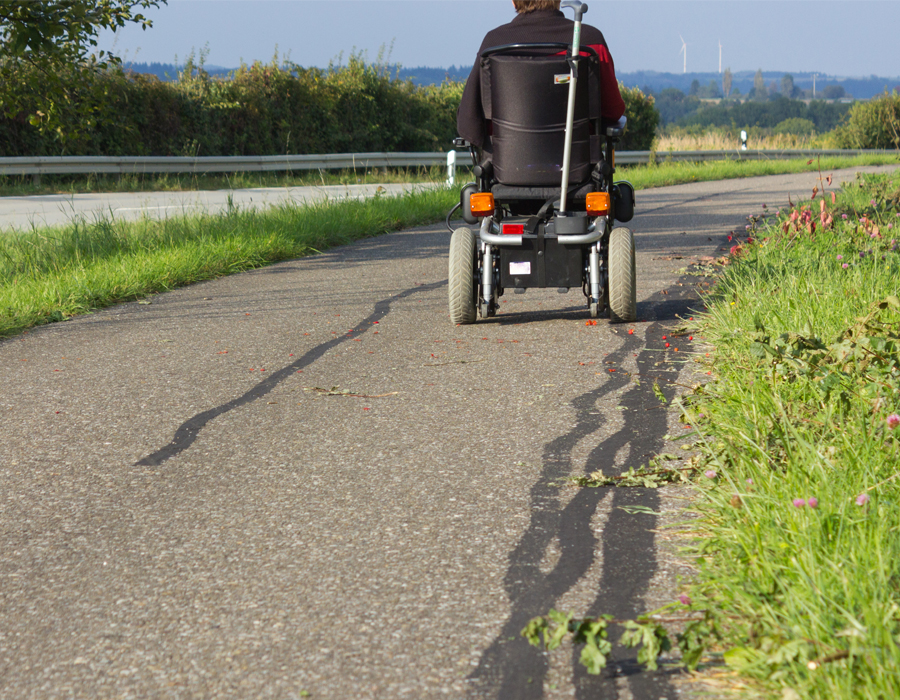New research from Citizens Advice reveals that someone makes a complaint every hour about assistive technology, with the majority of complaints being about defective goods.
While assistive devices, like mobility products, stairlifts, and hearing aids, are crucial for helping disabled people remain independent, Citizens Advice highlights that it has dealt with cases where people are stranded over their bath, stuck on the top floor of their house waiting for delayed repairs to a stairlift, or left in pain from using products which don’t meet their needs.
According to the charity’s Consumer Service, more than two thirds of assistive technology complaints in the last year were about defective goods. This includes products that are unsafe, poor quality, broken shortly after purchase, or never worked to begin with.
In total, 70 percent of all complaints were specifically about aids designed to help people with mobility, including mobility scooters (48 percent), stairlifts (12 percent), and mobility and bath aids (10 percent).
Other assistive devices that received complaints were orthopaedic chairs and beds (16 percent) and hearing and vision aids (13 percent).
In-store purchases appeared to be more troublesome for customers (37 percent), compared to online (23 percent).
Previous research by Citizens Advice found that while defective goods is the most common reason people come to the Consumer Service for advice, the vast majority also experienced poor treatment by the trader, including pressure selling, bad installation, refused returns, and delayed repairs.
The issues people experience when buying or using assistive devices stretch further than the people Citizens Advice supports. The charity conducted a UK-wide survey and found in the last year, around one in seven people bought an aid for themselves, or someone else.
The survey also found the majority of assistive technologies purchased are paid for using personal funds such as savings (60 percent), with one in five paid for using credit cards or finance.
The charity warns that people buying assistive devices experience problems at every point in the customer journey – from confusing and technical product information and poor customer service to poor quality items and a lack of warranty support.
Citizens Advice says these issues often have wide-ranging negative impacts on people’s emotional and physical wellbeing. There are more than 16 million disabled people in the UK, who are disproportionately affected by the cost-of-living crisis.
Dame Clare Moriarty, Chief Executive of Citizens Advice, said: “Too often, disabled people are being failed by a disability aids market that isn’t meeting their needs – and instead of offering support, it’s creating new barriers.
“Problems like faulty products and poor service don’t just leave people out of pocket, they can leave them literally stranded or unable to carry out even the most basic tasks. Having to battle to resolve problems only makes this worse.
“In this growing market, it’s vital consumers are armed with the correct information before making a purchase. We urge people to do their research, know their rights and stay safe when buying – and remember we’re here to help.”
Citizens Advice is giving advice to people looking to buy assistive technology as part of its Consumer Awareness campaign. The annual campaign is run by the charity in collaboration with the Consumer Protection Partnership (CPP), which includes Trading Standards and the Department for Business and Trade.
John Herriman, Chief Executive at the Chartered Trading Standards Institute (CTSI), said: “These findings are deeply concerning and highlight just how vital effective consumer education is for disabled people to help ensure accessibility and inclusion.
“Alongside enforcement, we need to ensure disabled consumers are empowered with the right information to make informed choices, recognise poor practice, and know where to turn for help.
“CTSI is committed to working with partners and the Approved Code Scheme provider – the British Healthcare Trades Association (BHTA) – to raise awareness, and support education efforts to protect all consumers, and ensure businesses are held to the standards they should be meeting.”
A previous survey from homelift specialist Stiltz revealed that one in six respondents said they have to avoid certain parts of their home due to mobility issues, while almost two-thirds admitted that their mental health is directly impacted by their ability to live self-sufficiently.
The post Defective goods made up 69 percent of complaints about assistive tech to Citizens Advice last year appeared first on AT Today – Assistive Technology.

